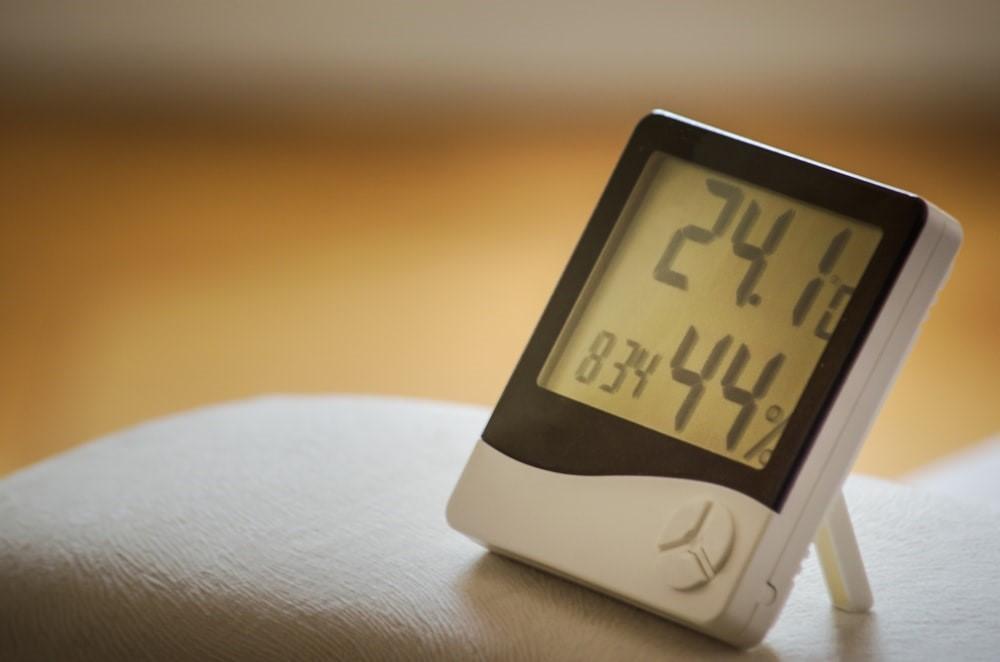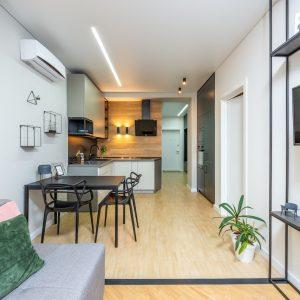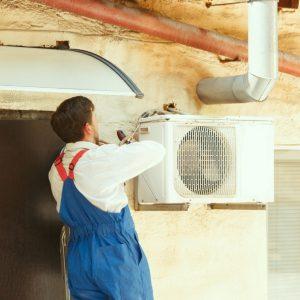HVAC works hard all year round to keep your home at a comfortable temperature. It keeps you cool during the summers and provides the necessary warmth during the winters. The continuous operation can put the system under a lot of strain, increasing the breakdown probability. Consequently, it leads to inconvenience, emergency repairs, and high costs.
To save yourself from the annoyance of a broken system, you should perform routine checkups to ensure that the framework is operating seamlessly. You should schedule an inspection twice a year, preferably after a period of sustained use, such as after extremely hot or cold months. Regular maintenance can also help you catch a problem beforehand, ensure that your HVAC system runs efficiently, and increase its lifespan. An adequately maintained HVAC also provides improved air quality and lower utility bills.
How to prevent costly HVAC repairs
Following are seven HVAC maintenance tips to prevent unexpected breakdowns and costly repairs:
Replace the air filters
One of the most important and straightforward HVAC maintenance tasks is to monitor the filters. These gather debris, dirt, and clogs over time, hindering the efficiency of the system. Dirty AC filters can also freeze with time, causing water damage when they thaw. Consequently, you may experience an increase in the bills.
Therefore, you need to check the filters for obstructions every month and clean the system accordingly. If you have a reusable filter, pull it out and wipe it gently with a soft cloth before washing it with mild soap and water.
You should ideally change the non-reusable filters every thirty to ninety days. How often you change the filters depends on the number of people and pets in your home. A higher number of individuals entails that you should replace them more often and vice versa. You can also invest in a hypoallergenic filter if you have someone in the family with allergies, as this helps purify the air very well.
Clean the condenser or heat pump
An outdoor HVAC unit can get markedly filthy over time due to weather conditions and the building up of debris, leaves, and twigs. Subsequently, the system is forced to work harder and inefficiently to maintain a moderate home temperature.
Therefore, make sure to clean the outdoor unit every month. Remove any obtrusive particles from the top and sides of the outdoor air-conditioning pumps and units, make sure to get rid of all the junk accumulated in the crevices, and use a wet or a dry vacuum to keep the condenser and coil clean. Hose the fins and condenser coils to ensure thorough cleaning and straighten any bent fins with a fin comb.
Trim the plants and shrubs to be at least a few feet away from the condensing unit. This allows the heat can exhaust more efficient, and there is less likelihood of pollen, torn leaves, and grass clipping to constrict the framework.
Clean the vents
Dust and dirt often accumulate on the air vents of a ducted HVAC system, hindering the airflow. Therefore, vacuum the vents routinely and check the airflow periodically to ensure that it is not weak. If you notice obstructed airflow, contact an HVAC repair in Nashville based company immediately to determine the cause of malfunctioning.
Clean the duct lines
Drain lines collect moisture from the air and direct them to the outside of your home. These lines are susceptible to mold and algae buildup. Dust and debris can also gather inside the drain lines of your air conditioner, causing a blockage. Therefore, you should clean the condensate drain lines regularly with a piece of cloth and a mixture of water and vinegar to combat the mold.
Schedule regular professional check-ups
Create a maintenance plan to get your HVAC unit checked and serviced annually. An on-site inspection by an expert technician ensures that your system is functioning efficiently at an optimum capacity. Moreover, the cost of standard upkeep will be far less than the money you will have to spend for potential repairs due to malfunctioning parts or system breakdown.
A professional checkup usually involves the following:
- Cleaning of coils and drain lines
- Checking and replacing the air filters
- Ensuring the proper fan functioning
- Checking the refrigerant level
- Looking for leaks in the heat exchanger
Even a yearly professional intervention is enough to keep your HVAC unit working sustainably.
Pay attention to the sounds
Keep an ear out for the noise emanating from your HVAC unit. A rattling, groaning, grinding, or thumping sound, which is louder than the usual humming of the system, is rarely a good sign. If you notice that your unit is unnaturally noisy, call an HVAC company for inspection.
Check the thermostat
You should also pay attention to the temperature inside the house compared to what is displayed on the thermostat. If it is too chilly or too warm than the set temperature, it indicates a system that is not running at its optimum capacity. You should also check the thermostat to ensure that it is not faulty.
Moreover, replacing the manual thermostat with a programmable one can help you save money on utility bills and reduce system wear and tear. Setback thermostat enables you to enter a series of settings that control and adjust the temperature throughout the day.
For example, a programmable thermostat will keep the home temperature similar to the outside temperature during the day when no one is home. The system will then return the house to a comfortable temperature before you return home.
Some of these thermostats can also detect when your AC has a decreased efficiency, or the indoor air quality is not clean. These signs can alert you about an issue with your unit so that you can take preventive measures.
Conclusion
HVAC maintenance is essential to ensure that your unit is working perfectly. A malfunctioning system can lead to compromised air quality, uncomfortable indoor temperatures, and high utility bills. It can also result in substantial amounts in repair costs and unnecessary hassle.
Therefore, check the different components of your unit, replace the air filters, and clean the dust and dirt from every nook and cranny. Moreover, schedule a professional inspection before the peak usage and adopt a smart system with programmable thermostats. Preventative measures are better than expensive repairs and unnecessary headaches.




